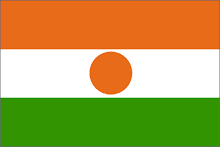Hello all,
I hope all is well and that you are enjoying the holiday season. Whether you are rushing around to decorate a tree, enjoying cod balls at the annual, coolest-ever Bainbridge Santa Lucia Party, on a plane and excited to get home, or gearing up for the massive sheep sacrifice/ BBQ extraordinaire that is Tabaski, I hope life is good chez vous.
I decided it was high time to provide you all with an update on the progress of my research. I fear that, from reading my blog, you might get the impression that all I do is bounce around on buses and take vacations all the time — I promise, that's not entirely true!
To be honest, when I arrived in September, I was a bit overwhelmed by just being here and attempting to settle in . . . now that I have been here for almost three months, I look back at those first weeks and laugh at myself, because now I'm totally comfortable here and in some ways can't imagine being anywhere else. Every day is interesting and different in one way or another, and I like the combination of visiting new regions and rural villages for research, then returning to a comfortable routine here in Niamey, where I have my rockin Tuareg homestay family and good friends to chill with.
Anyway, when I first arrived, I didn't know exactly how to start my research and how to frame my questions and understand what I was trying to find out. I think my biggest breakthrough came from my stay in the desert. I learned a ton not only from conducting personal interviews with around 140 women, but also from simply observing life and being a part of it. I was quite far away from anything that was familiar to me, and there was no way for me to get out of my research environment, so to speak, so I was able to see the rhythms of each day and to participate in the daily routines and rituals of the Tuareg population with whom I was living and working.
I am currently wrestling with some questions revolving around the idea of ishak, a Tamashek word that basically means "respect." This concept has an incredibly important place in Tuareg society; not only does it govern the behavior of community members, but it circumscribes the roles and responsibilites of women, men, and children. I am interested in how ishak affects the relationship between women and men, and if it is a source of empowerment for Tuareg women, or merely a fact of life. I also want to find out if the respect and admiration that Tuareg women receive in certain social spheres — for example, within the household and in the marriage rituals and traditional laws — extends to the political arena, a part of society dominated by men not only in other Nigerien ethnic groups such as the Hausas and Zarmas, but throughout the world.
I am sorry to report that thus far I have not witnessed Tuareg women exercising political power in the way it is defined both in Niger and in the West. For example, there are no female Tuareg chiefs, and Tuareg women in the communities I have visited do not preside over community disputes over land or animals, etc. However, I have met strong, intelligent Tuareg women throughout Niger, both in Niamey and in the desert, who have found alternate channels and ways in which to influence their societies—founders of NGOs, leaders of ingenious women's banking collectives (this is in the desert, and the women in this community cannot read or write but have devised ways of keeping track of their money and pooling it for farming projects), traditional healers (some who make birth control products from traditional plants to space out their pregnancies and avoid serious problems such as fistula), and charismatic wives of local chiefs.
I could go on, but my point is that Tuareg women are finding ways to empower themselves in ways that do not ignore the traditional values of their society, but that incorporate them in culturally relevant and acceptable ways. I was naïve when I first came here (and of course I still am), because I was assuming that respect for women within Tuareg society (which is a Tuareg societal trait that pretty much all Nigeriens seem to recognize) was basically a golden ticket to gender equality and a commitment to women's rights. Now I am seeing the nuances of Tuareg society and watching how power and traditions and gender roles interplay. It is pretty awesome to me that I am lucky enough to have the chance to study this stuff, and to benefit from the kindness of Tuaregs plus the expertise of Nigerien scholars who let me talk to them in my idiotic French even though they have approx. 5 advanced degrees each and could smash me to pieces with their knowledge of West African history, religion, and politics.
Now I am starving and must go find some food, I think I am going to go hit up Zeynabou's, a rocking street food place with couscous and green leafy sauce with peanut and smoked meat, really, what more would you want? Plus the dude next to Zeynabou sells lemon-mint juice that is to die for.
Thanks for reading and have a nice day!
Monday, December 17, 2007
Subscribe to:
Post Comments (Atom)



2 comments:
Maggie,
Your work is so awesome! I admire what you are doing and am also quite envious!
God Bless!
Rachel Eggum Cinader
Hi!
I love it here! I found your blog through facebook and I appreciate every single post you manage to put on this blog.
As a Nigerien and half Tuareg women I find it very interesting to re-discover my culture through western "naïve" eyes ;)
Your raised very interesting questions about woman place in our society. I think women won't do politics because no-one really believes in politics anymore. If you want to make the difference then politics is not the best way.
Besides this, I think that the gender equality that, I think, exists in traditionnal Tuareg culture, does not exclude a distribution of roles between men and women. As warriors, men were "naturally" meant to be assigned the political functions, while women were exercising other functions (transmission of culture, education, include tifinagh writing and reading, and so on) It's more subtle than a straight equality ;)
I think you need to investigate more about the whole "ashakk" concept, it deserve a blog of it's own! ;)
Cheers,
Fati
Post a Comment